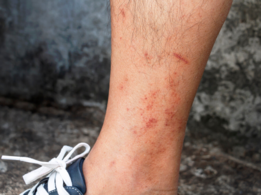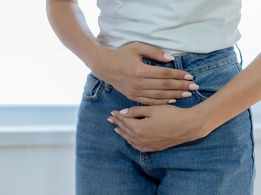Singer Ellie Goulding fasts for 40 hours at a time: How many hours of intermittent fasting is considered safe?
TIMESOFINDIA.COM | Last updated on - May 20, 2020, 15:04 ISTShare fbsharetwsharepinshareComments (0)
01/10Ellie Goulding is a fan of Intermittent Fasting
)

Fasting is a popular diet which has many takers, with Intermittent fasting being the most popular one.
While for beginners and even the experienced ones, fasting for more than 16-18 hours can feel like a stretch, however, popular singer Ellie Goulding recently revealed that she can fast up to 40 hours at a time.
02/10Ellie Goulding fasts for 40 hours at a time
)

Adding that she can go without having food for a couple of days, Ellie mentioned that she is mindful of the nutritional concerns and does it very safely:
“I do it very safely by having a purposefully nutritious food day the day before and after,”
The singer also mentioned that she likes to have low-calorie options like tea of coffee, or electrolytes when she is on her fast day. Having water, again, is a mist for her.
03/10Why Ellie is a fan of Intermittent Fasting
)

Ellie also said that while she is a fan of intermittent fasting, she started fasting for 12 hours first, and slowly, was able to build her stamina and can now withstand not eating for 40 hours.
Praising its benefits, the singer said that fasting this way was a great way for her to give her digestive system "a break".
04/10Other celebrities who gave long hours fasting a try
)

Just recently, it was Bollywood's own Greek God Hrithik Roshan who discussed how he was able to fast for 23 hours at a time as a way to challenge himself. Not just him, Twitter CEO Jack Dorsey has always been in the news for his unusual eating habits, his preference for fasting and most prominently, limiting his food intake to just 5 times a week.
05/10Is fasting for long hours safe?
)

It's not just the celebrities who are trying out this challenge. Fasting for long hours is traditionally observed by a lot of communities and comes backed with therapeutic benefits. However, it does make one think- is it really safe?
06/10Is it dangerous or beneficial?
)

Apart from beating the cravings, long fasts can help give your system a good clean up. Medically, this is known as 'autophagy'- cleaning of any junk or bad calories and toxins from the system and may even hold powerful cell regenerating properties.
Mentally, it can help you re-establish your relationship with food or induce mindful eating and may even help beat stress or disorderly eating habits.
07/10Does it work for weight loss?
)

Since the body is deprived of calories, many think it can be a good way to lose weight. If anything, long fasts can be a way to get into ketosis faster and the body adapts to using fat for fuel in the longer duration. This can help people who are on the lookout for faster weight loss but it does come with its own set of precautions. If you don't follow it properly, chances are, you will end up gaining the weight back post the fast.
08/10Are there any disadvantages?
)

Just as you learn the benefits, it is also important to keep in mind the cons of such long fasting hours.
Firstly, it's not meant for everyone. Fasting is not a miracle cure. Remember this- longer the hours you go without food or water, more are the health repercussions. From nausea, bloating, dizziness or severe hunger, or exhaustion, fasting extensively can have drawbacks too.
09/10Who should avoid fasting?
)

People with underlying health issues such as Type-1 diabates, low B.P., pregnant women, or history of eating disorders should vary of trying out diet fads and concentrate on getting wholesome nourishment.
10/10How to fast the right way
)

According to experts, fasting can be helpful if you do it in a rightful manner. Dry fasting, which involves you to skip out water as well as food is not the most helpful kind, because it can leave you without any source of hydration.
Again, one has to be watchful about not skipping out on supplements and nutrients during the fasting window. It's important to keep nourishing yourself. Water, low-calorie drinks, electrolytes can be had in between to make up for depleting sodium and potassium levels in the body.
If you must fast, try acquainting yourself with short fasts first and slowly and gradually, challenge yourself to fast purposefully.














































































closecomments
SIGN IN WITH
FacebookGoogleEmail